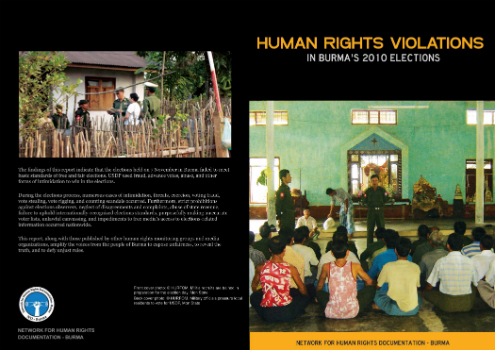Pakao More – Five months after the highly contested November 7th elections in Burma, the Network for Human Rights Documentation in Burma (ND-Burma) has come out with a comprehensive review, highlighting 80 counts of fraudulent undertakings and human rights violations that allowed the junta-backed United Solidarity and Development Party (USDP) to win the first elections in 20 years.

Combining documented information from twelve different organizations working for human rights in Burma, the report describes the methods used by the USDP to ensure its victory. Interviews were collected throughout Mon, Shan, Chin, Arakan, Kachin, Karen, and Karenni States as well as the Irrawaddy Division. The accounts are riddled with abuses coming in the forms of denying one’s rights to freedom of movement, freedom of expression and association, the use of advanced votes, bribery, and threats, as well as the denial to vote based on the area in which one lives or ethnic minority to which one belongs.
Yet, according to this report, titled, “Human Rights Violations in Burma’s 2010 Elections,” it was not only the actions of the USDP that resulted in an undemocratic outcome, but the rules by which the election was run. The lack of transparency, the Election Commission’s refusal to look into abuses committed against citizens before the vote, and the allowed use of advanced votes, which most often resulted in an advantage for the USDP, all combined to make certain that other parties contesting had little chance of success.
According to Nai Aue Mon, spokesperson and Management Board Member of ND-Burma, “Even though there are some opinions saying that the election is the first positive step for democratization in Burma, the collected documents clearly show that the military regime will exist in disguise as a civilian regime, will reign the country with repressive measures and the people of Burma will continue to struggle for freedom and democracy.”
This report, using straight-from-the-source quotes clearly shows, without the necessity of prolonged analysis, the abuses that the citizens of Burma experienced, prohibiting most from making individually informed decisions when at the poll stations. Though the report highlights 80 different accounts from areas throughout Burma, there were many hundreds more from which ND-Burma could have chosen to display transgressions against Burmese citizens’ freedom to choose for themselves.
To read the report in full, please visit www.nd-burma.org.



